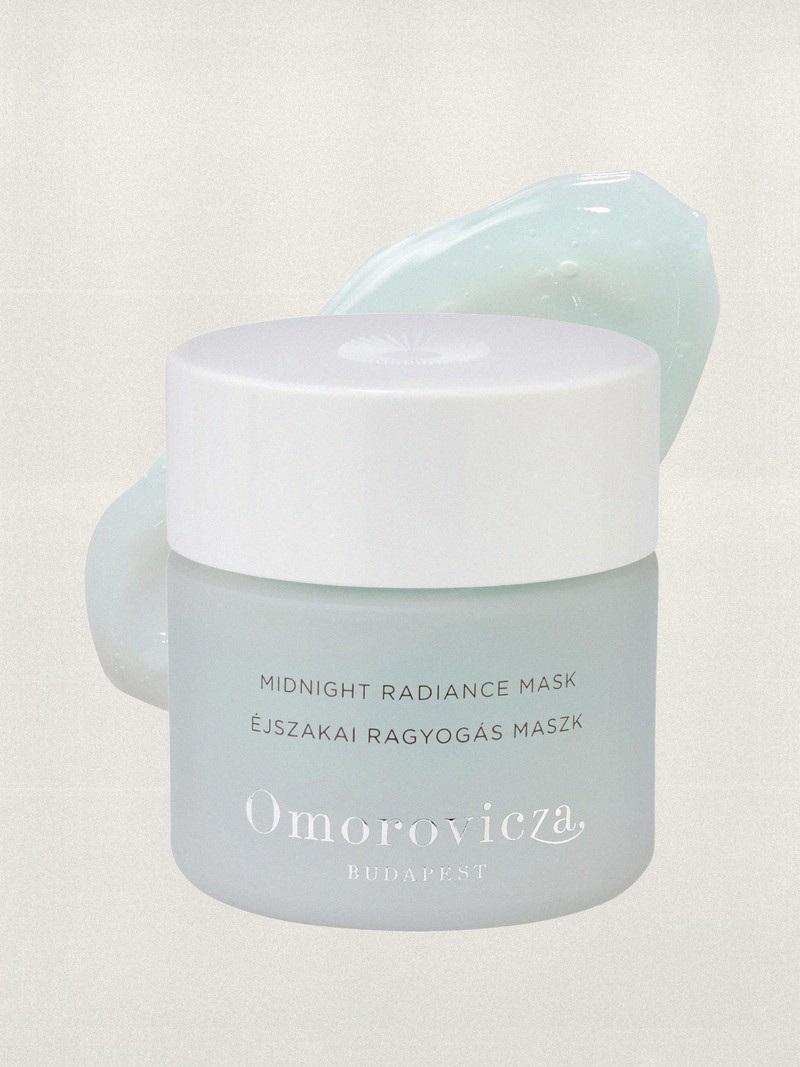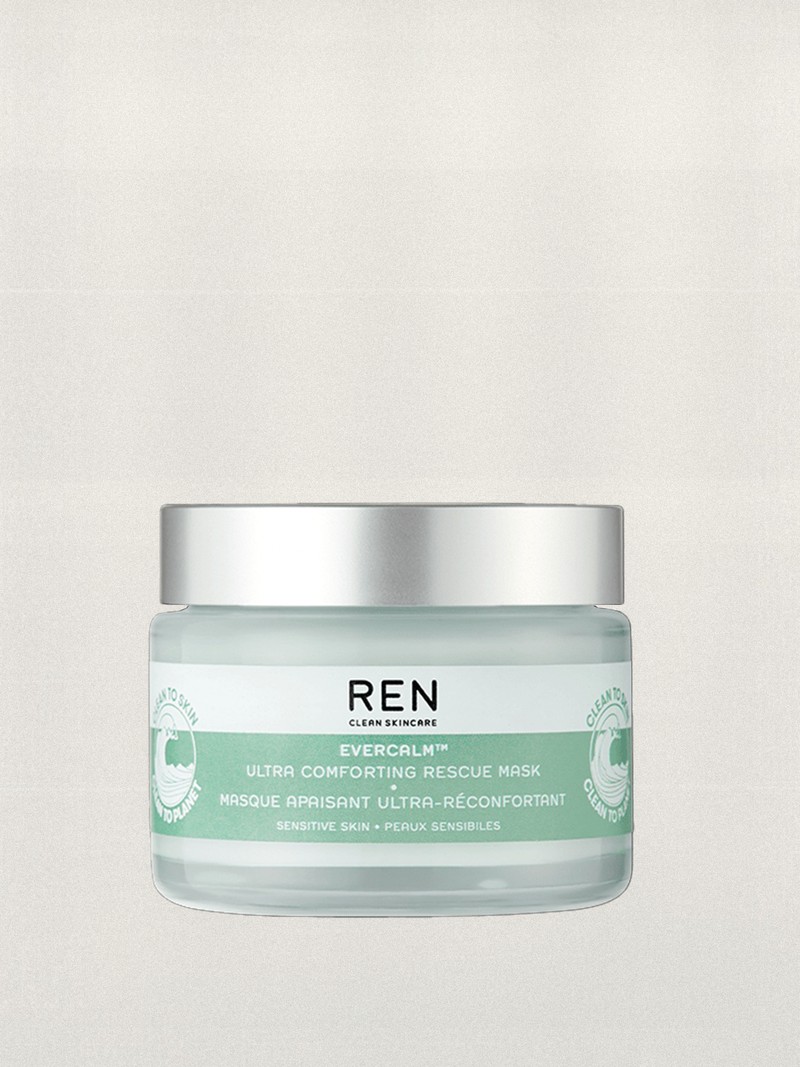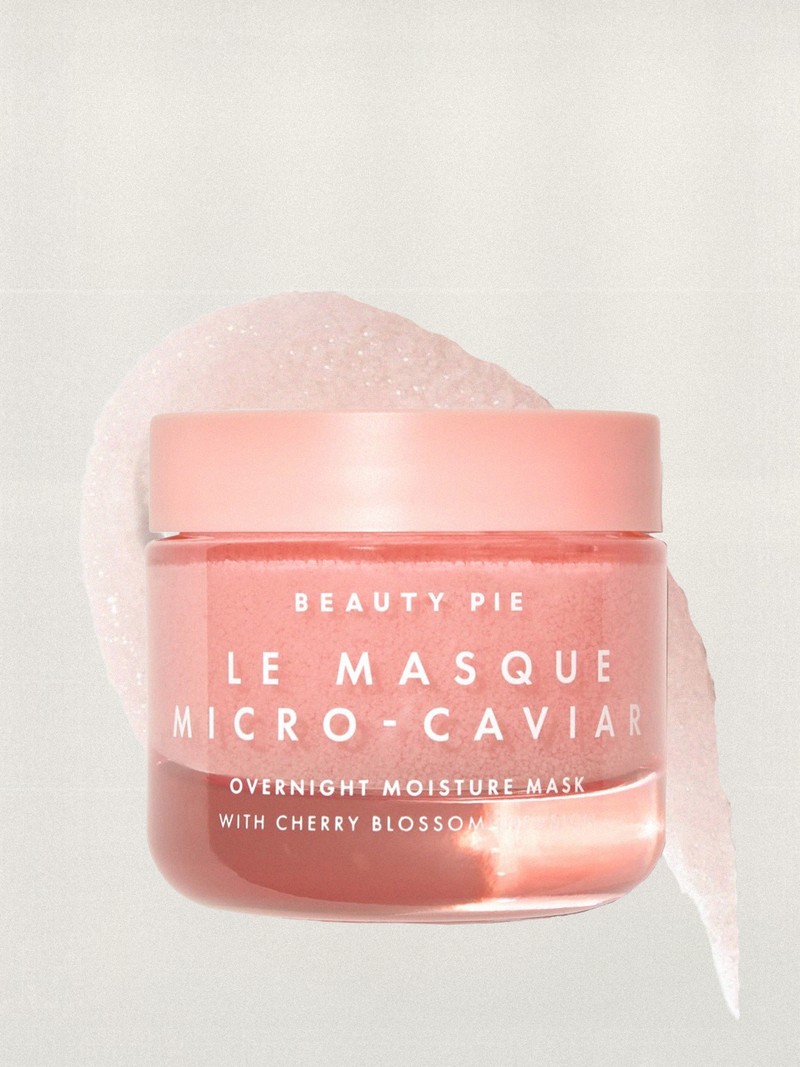
The Best Overnight Masks To Plump Up Dry, Winter-Weathered Skin
Bouncy & Firm Sleeping Mask
£32 | Laneige
K-Beauty brand Laneige is best known for its lip masks, but this is another winner. True to its name, it’ll leave you looking bouncy and fresh when you wake up – but even if you can only steal 15 minutes, you’ll see the difference. Using a 7.25% peony-collagen complex to firm and plump, this is great if you want to smooth over dehydration lines before applying make-up.
Available at SPACENK.COM
Midnight Radiance Mask
£85 | Omorovicza
Hungarian spa brand Omorovicza just can’t put a foot wrong. Its Midnight Radiance Mask is a game-changer either if you’re oil-prone, concerned with pigmentation or both. Sand lily extract and salicylic acid are the hero ingredients, working in tandem to brighten and clear pores. Trust us – your skin will appear visibly calmer the morning after use.
Available at OMOROVICZA.CO.UK
Evercalm™ Ultra Comforting Rescue Mask
£40 | Ren
If your skin is feeling angry or inflamed, this is the formula to reach for. Designed for use on sensitivity, REN’s Evercalm Mask is clinically proven to calm irritation and – crucially – get to work quickly. The formula uses white mushroom extract, rich in anti-inflammatory phenols and soothing arnica to give your skin some much-needed relief.
Available at RENSKINCARE.CO.UK
Masque De Nuit Au Camélia
£72 | Chanel
Harnessing the power of the camellia flower, this creamy, luxurious mask gives skin a renewed softness. The nutrient-rich formula smooths over dehydration lines, creating a fresh, plumped feeling which actually lasts for several hours. Apply it in place of night cream, taking the time to properly massage it into your skin for the best results.
Available at SEPHORA.CO.UK
Rose Deep Hydration Sleeping Mask
£27 | Fresh
This dual-formula mask by Fresh is slightly extra but it does the trick. A treat for dehydrated types, the first step is a cooling gel-essence, powered by rosewater, damask rose extract and hyaluronic acid for that instantly quenched feeling. Then, to lock it all in, you layer the silky water-cream over the top which uses gradual-release liquid patches to prolong hydration and restore bounce.
Available at SPACENK.COM
The Special Mask
£200 | Eviedens De Beauté
EviDenS’ aptly named Special Mask is expensive, but worth the splurge if you need to breathe life back into your skin. It contains menthyl lactate which creates a satisfying, icy-fresh sensation – blissful while you’re having a hot soak. After use, your skin not only feels invigorated, but is noticeably less puffy.
Available at HARRODS.COM
Le Masque Micro Caviar Overnight Moisture Mask
£150 | Beauty Pie
Beauty Pie’s new launch feels so luxurious on the skin thanks to its unique micro-bubble texture. Powered by cherry blossom, saffron extract and meadowfoam seed oil, it delivers a welcome burst of hydration – which is so needed at this time of year. Make it your go-to if you’re hoping to look dewy and well-rested.
Available at BEAUTYPIE.COM
DISCLAIMER: We endeavour to always credit the correct original source of every image we use. If you think a credit may be incorrect, please contact us at info@sheerluxe.com.








